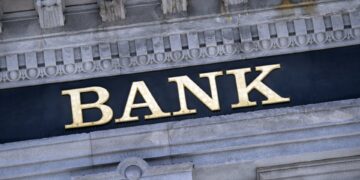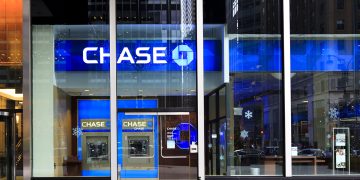The recovery from the pandemic recession may be a year or two away, most community bankers said in a new survey.
About 43% of executives don’t expect the economy to completely rebound until 2022, while 23% believe the wait could last into 2023 or later, according to a recent IntraFi Network survey of CEOs, presidents and chief financial officers of nearly 500 banks with up to $10 billion of assets.
Among those who expect a turnaround this year, nearly all foresee it happening in the back half.
The timeline for an anticipated recovery has lengthened. More than half of executives polled last summer predicted a bounceback at some point this year. Fifty-four percent of respondents then said the impact on their business from the COVID-19 pandemic would last until some point in 2021.

The latest survey was conducted in the first two weeks of January as the early rollout of the COVID-19 vaccine was stalled in many states; the delays have led to some caution from banks, according to Paul Weinstein, a senior adviser at IntraFi.
“The initial euphoria was tempered by the reality of administering the vaccines,” Weinstein said. “The fact that we hadn’t hit 20 million vaccinations at the end of the year as promised, that sobered reality a little bit that the vaccine process is going to take a little longer.”
Already some banks have signaled they plan to release reserves held for potential loan losses until later than previously expected.
The pace of vaccines has started to improve. At the time the survey was conducted, the U.S. was averaging less than 400,000 vaccinations per a 7-day rolling average, as tracked by the Centers for Disease Control and Prevention. That had increased to roughly 1.4 million shots per day as of Feb. 9.
An overwhelming majority of executives, about 92%, said they would not require employees to receive a vaccine before coming back into the office, according to the survey.
About 42% of the bankers surveyed believe pandemic relief, especially matters tied to Paycheck Protection Program loans, will dominate the Biden administration’s banking legislation agenda, according to the survey. Some PPP-related changes have been proposed, including allowing more businesses to access the program and permitting companies to deduct expenses incurred to secure a loan.
About one in five bankers said the new administration would be most active around housing policy reform.
“It made a lot of sense that the focus was going to be on COVID relief,” Weinstein said. “A lot of issues we would normally think of for a Democratic administration, like [the Community Reinvestment Act] possibly or privacy or payday lending, that stuff was still significant, but it wasn’t as big as the COVID relief.”
When asked where the White House would be most successful moving bank policy changes through Congress, 16% of those polled pointed to clarification around how marijuana companies can be treated by the industry, the second most common agenda item behind COVID-19 relief. Interestingly, this percentage of executives who believed marijuana legislation could pass Congress was more than double the 7% share of those who believed the issue would be a priority of the Biden White House.
New leadership at the Consumer Financial Protection Bureau is expected to make home lending, specifically mortgage servicing, a priority, according to 31% of those executives surveyed. The industry has braced for a tough stance from the bureau against any mortgage servicers seen not working with borrowers during the pandemic.
About 20% expect data privacy to be the leading issue for the agency as banks are currently sparring over what consumer information should be shared with third-party fintech companies.
“I thought privacy might be a little higher,” Weinstein said, “but someone in banking wouldn’t be surprised with a focus on mortgage and servicing given the nature of the pandemic and the challenges there.”








